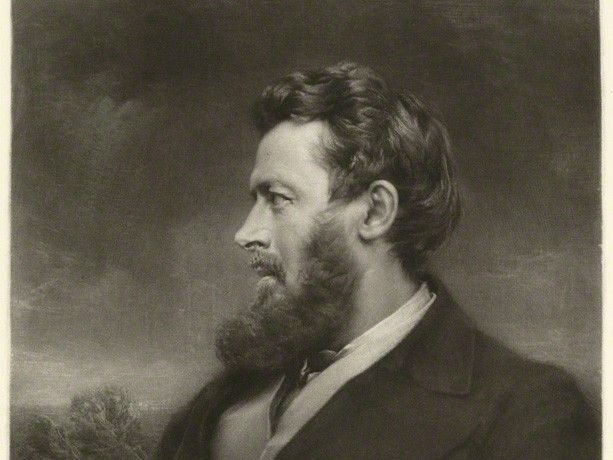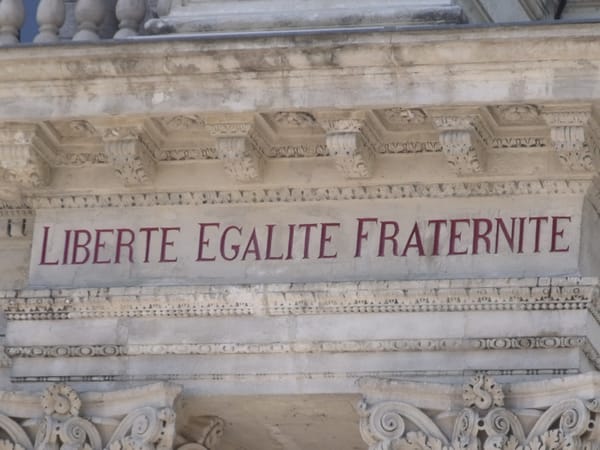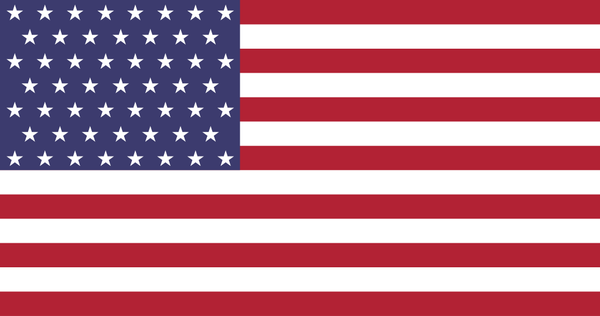Pretend You Are God: Alexander Zevin's History of The Economist

Liberalism at Large is an intellectual biography of The Economist with a special emphasis on how the ideology of the 175+ year old liberal newspaper has evolved—and failed to evolve—with the times. Alexander Zevin argues that this history provides a special insight into liberalism itself, as The Economist has expressed the dominant strain of liberalism, warts and all. For Zevin, these warts are imperialism, resistance to democracy, and financial capitalism.
I write this review as a liberal and a longtime subscriber to The Economist, one who in recent years has had sharp criticisms of the paper. Liberalism at Large offered a lot of fascinating material that made me see the paper in a new light. The first example is the founding period under its first editor, James Wilson. Few who read The Economist nowadays could fairly describe the paper as laissez faire, yet at its founding in 1843, the newspaper favored free trade and a gold standard and opposed virtually any regulatory interference in markets, especially in favor of workers. It opposed government-provided public education and the creation of a public health board. The Economist equated private profit with public interest. “Where the most profit is made, the public is best served … limit the profit, and you limit the exertion of ingenuity in a thousand ways.” For The Economist,
‘no consistent medium between perfect freedom of capital and labour, and that principle which would regulate wages, profits, and the whole relations of life by acts of legislation – between perfect independent self-reliance and regulated socialism – between Adam Smith and Robert Owen’, was possible. As if that were not emphatic enough the next week it declared, ‘the more it is investigated, the more we are compelled to acknowledge that in any interference with industry and capital, the law is powerful only for evil, but utterly powerless for good.’
As a newspaper founded specifically for the purpose of defending free trade and advocating against the Corn Laws, The Economist was backed initially by the liberals of the Anti-Corn Law League, John Bright and Richard Cobden. These radical liberals were animated, along with Wilson, by a vision of free trade, peace, and goodwill among nations. But Wilson and The Economist split from the radicals by endorsing Britain’s involvement in the Crimean War and mounting a liberal defense of the British Empire that has only rarely wavered ever since.
The Economist would come to look somewhat more recognizable to today’s readers under the editorship of Walter Bagehot, whom the paper honors to this day with an eponymous column (about British politics). Under Bagehot, The Economist softened its laissez faire stances, renouncing its support for a gold standard, favoring a graduated income tax, reversing its opposition to any and all factory regulations as assaults on free trade, and even endorsing state ownership of the railways.
Bagehot also gives some of the most colorful representation of 19th century right wing liberal antagonism toward democracy. Bagehot, even more so than the Liberal parliamentarian founder Wilson, was a blunt advocate of the elites. He argued the secret of the English constitution was that some ten thousand educated and propertied elite men held the reins of power and must retain that power regardless of democratic pieties the lower classes may be led to believe. Extension of the franchise to the lower orders would be a disaster.
‘What I fear is that both our political parties will bid for the support of the workingman.’ There was no worse misfortune ‘for a set of poor ignorant people than that two combinations of well-taught and rich men should constantly offer to defer to their decision’. Or, rather, there was one: the poor and ignorant conferring among themselves. ‘In all cases it must be remembered that a political combination of the lower classes, as such and for their own objects, is an evil of the first magnitude.’
Bagehot’s contempt for the lower classes reminded me of no one so much as the great American liberal misanthrope H.L. Mencken, who would quip “Democracy is the theory that the common people know what they want and deserve to get it good and hard.”
It was under Bagehot that The Economist engaged in perhaps the most inglorious defense of free trade in its history. In a great “We abhor slavery but—” moment, The Economist suggested the South had the marginally better case in the American Civil War owing in part to its gentility and in part to getting their trade on the cheap. As Zevin recounts:
Harriet Beecher Stowe and her abolitionist ilk were thus wrong to accuse London of rooting for the South: ‘The effectual discomfiture of either party would answer our purpose equally well.’ If The Economist looked slightly more favourably on the South, this was because it had a right to leave the Union, was ‘more decent and courteous’ to Britain, and because it desired ‘to admit our goods at 10 per cent duty, while their enemies imposed 40 per cent’. Not just a geopolitical check, then, but freer trade would flow from the Southern states’ independence.
Zevin goes on to note that New York Daily Tribune columnist Karl Marx took this opportunity to mock The Economist for graduating from mere rationalization of slavery to being “honest enough to confess at last that with it and its followers sympathy is a mere question of tariff.”
Since its founding in 1843, The Economist was a strictly Liberal paper, backing the party in politics and supporting imperialists against radicals in intra-party squabbles. This all ended when the paper endorsed Conservatives against Gladstone over the issue of Home Rule for Ireland in 1885. Given the choice between liberalism and empire, The Economist didn’t hesitate to plump for the latter.
But The Economist did engage in a brief fling with Cobdenite pacifism under the leadership of Francis Hirst, who helmed the paper from 1906 and argued in Liberalism and Empire that imperialism was the greatest threat to liberalism, offering governments excuses to erect tariffs and raise taxes and spending. Hirst steered The Economist to keeping Britain out of the Great War, and for his trouble was sacked in 1916. The Economist would never again waiver from imperialism, except to replace the British with the American variety mid-century.
Hirst’s tenure did augur some lasting changes, including bringing on the first female editor (Mary Agnes Hamilton) who was not only a suffragette (in contrast to Hirst himself, who thought women’s suffrage was “anti-liberal”) but would go on to join the Labour Party in Parliament. The intellectual diversity of The Economist’s staff would flower, even including socialists and critics of liberal imperialism. A glance at the current staffing reveals that at some point that diversity began to spread to race and ethnicity, with the ranks of women swelling as well.
Whatever the internal partisan makeup, the editorial voice took another rightward turn during the Cold War years, when the paper did more than just provide rock steady ideological support for America and the West. In some cases its writers—especially Robert Moss and Brian Crozier—worked in direct consultation with the CIA. The paper endorsed virtually every American led destabilization of left regimes in the Americas and Asia and endorsed both Reagan and Thatcher for their muscular foreign policies, if not their domestic agendas. (Reagan’s “Lafferesque faith” in the power of tax cuts combined with increased spending, and his Supreme Court appointments that risked “making America a less liberal society” were particularly worrying.) As Johnny Grimond (foreign editor at the turn of the 21st century) remarked on his retirement, The Economist “never saw a war it didn’t like.”
Zevin makes no attempt to hide his ideological opposition to The Economist, yet whether this was his intention or not, he also humanizes the paper. The reader gets to know individual editors and writers during the course of the book far better than even devoted readers can with the anonymous weekly alone. Zevin regularly points out ideological foibles and opinion howlers, but he also presents internal disagreements with human faces. The unlikely result, in this subscriber’s case at least, is a rekindling of enthusiasm for following The Economist. I root for the elements of my kind of liberalism to prevail and prosper.
What are these elements, and what hope do they have? I share Zevin’s major concerns about The Economist’s liberalism: “democratic dissatisfactions, imperial conflicts and debt-fuelled financialized capitalism as far as the eye can see.” The Economist seems to have come to terms with democracy, at least in the rich world, but it continues to view democratic outcomes it disapproves of—usually those bringing leftists of any kind into power—with its old imperial disdain. It’s all too ready to back up this disdain with force, usually outsourced to the Americans. It is as hard to see the liberal newspaper forswearing war as it is to see it renouncing financial capitalism. And yet for a brief spell under Francis Hirst it did just that.
Even The Economist’s views of financial capitalism have evolved. It is now much more likely to prescribe Keynesian fiscal remedies. This was achieved over stiff resistance. Zevin recounts a long debate between The Economist and J.M. Keynes in the interwar years over government stimulus and the role of moderate inflation; Keynes seemed to enjoy needling The Economist with frequent letters, to which the paper felt obligated to reply. As the economics profession evolves, The Economist seems to follow suit. Current editor Zanny Minton Beddoes made this clear with her successful audition for the top job. In her special report, Beddoes argues that the rich world must confront inequality at the top—making sure the ultra-wealthy are adequately taxed—the bottom—secure access to education and healthcare—and the middle—eliminating politically popular subsidies, like mortgages.
The Economist is even at the leading edge of certain issues, including carbon taxes, drug legalization, and housing abundance policies. The paper is in my view ahead of the curve in taking the environmental risks of high meat consumption as an environmental risk seriously. It occasionally suggests decriminalizing sex work. Perhaps these are all small issues compared to imperialism and the dominance of global financial capitalism, but they nonetheless give reason to cheer.
Though the topics are mostly neglected by Zevin, racism in America and trans rights are subject to the most retrograde treatments to this day at The Economist. While acknowledging “racial wounds” and even offering decent policy advice to lessen racial inequality, The Economist often maliciously interprets antiracist thought as intrinsically a threat to liberalism and too often indulges anti-antiracists. Yet the current Lexington columnist, James Astill, has to his considerable credit taken American racial injustice seriously enough to suggest the country is due for a “Third Reconstruction”. Nothing fundamentally stands in the way of The Economist apprehending racism—rather than antiracism—as the powerful threat to liberalism that it is.
On the surface there appears to be less reason for hope in resolving transphobia at The Economist. The paper seems to take every opportunity to mischaracterize or cast doubt on medical and psychiatric best practices; to dehumanize and exploit deceased trans persons; and to defend anti-trans activists. Yet much of the obsession with trans people likely owes to a certain editor who moonlights as an anti-trans activist. Mainstream feminism has grown increasingly intolerant of trans-exclusionary perspectives. One can reasonably hope that the basic classical liberal impulse to respect the lifestyles of individuals and to assume they understand their own lives and circumstances—and identities—better than bureaucrats and busybodies will prevail at the liberal newspaper in the end.
Liberalism at Large tracks an influential, possibly dominant strand of liberalism as it has evolved in actual practice over the better part of two centuries. Perhaps liberalism has never been in good hands, however much the editorial voice pretends to be that of God. But it’s not all bad, and in many ways it’s gotten better over the years. This reader thinks there is hope for The Economist. There’s certainly hope for liberalism.




